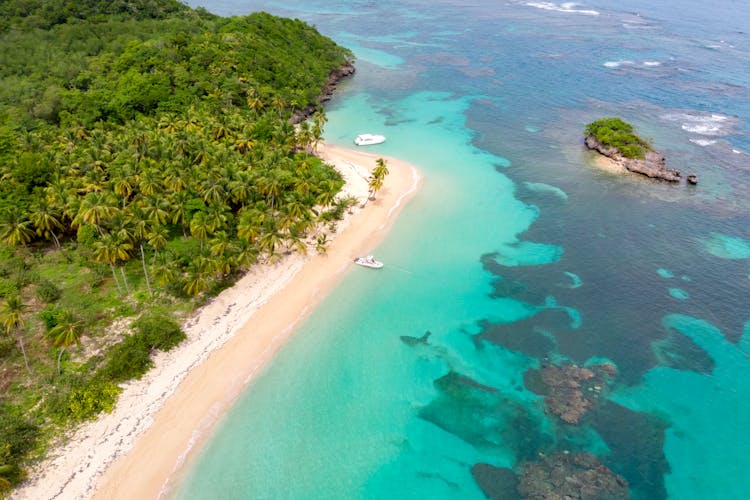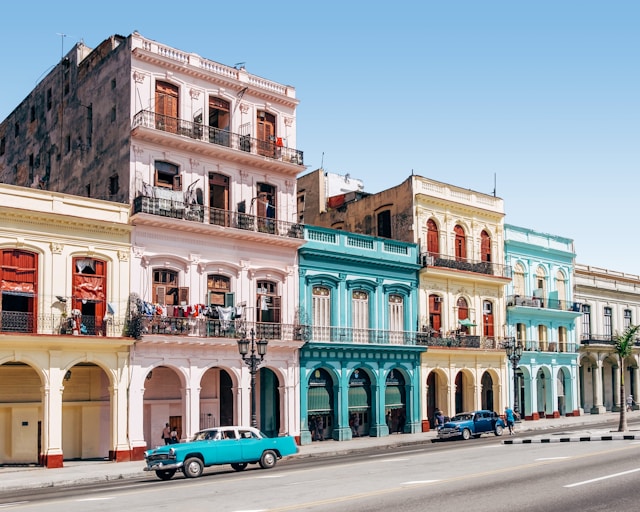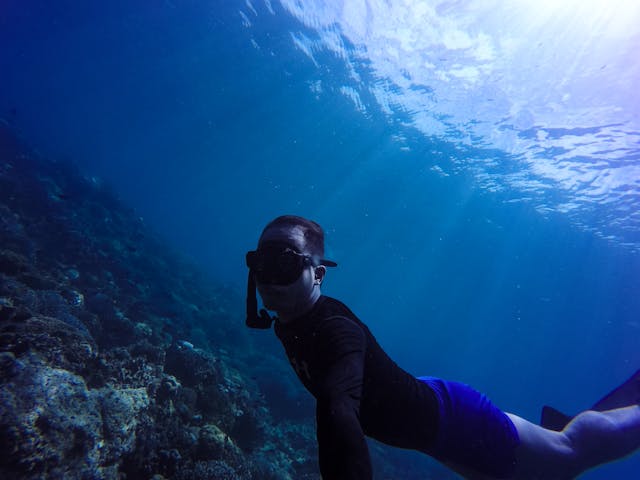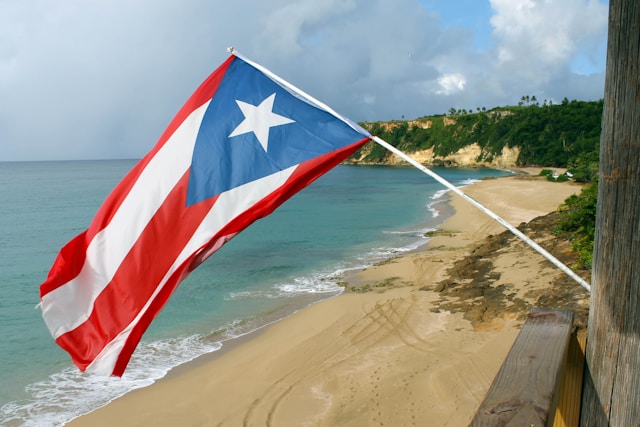Top Caribbean Islands Offering Unique Learning Opportunities for Families

View of the palm trees, the sandy coast, and the water in the Dominican Republic – IMAGE: Pexels
Caribbean islands offering unique learning opportunities
The Caribbean, a vibrant mosaic of cultures and natural beauty, offers much more than traditional beach vacations. It’s a treasure trove of educational adventures, particularly appealing to families keen on merging relaxation with enriching experiences. These islands, renowned for their stunning landscapes, also boast a depth of history, culture, and environmental wonders, making them ideal for interactive learning. From the historic streets of Old Havana in Cuba to the lush rainforests of Jamaica, each island presents a unique backdrop for exploration and education. We will explore various Caribbean islands offering unique learning opportunities for families. Here, every day is an opportunity to learn something new, be it a historical fact, an ecological insight, or a cultural understanding, all while creating unforgettable memories in some of the world’s most beautiful settings.
Cuba: History and Culture Come Alive
Cuba is a living museum, where its history is reflected in the streets of Old Havana, a UNESCO World Heritage site. Imagine wandering through centuries-old cobblestone streets, surrounded by buildings showcasing Spanish colonial architecture. Interactive historical tours could include visiting the Bay of Pigs Museum, where families can learn about Cuba’s pivotal moments.
Besides history, Cuban culture is rich in arts. Havana’s vibrant music scene offers salsa dancing classes, where families can learn dance steps alongside local instructors. Children and adults alike can also partake in Cuban art workshops, where they can create their own Caribbean-inspired art and learn about the island’s famous artists like Wifredo Lam.


Cuban culture is rich in arts and history, showcased throughout its streets. IMAGE: Pexels
The Bahamas: Marine Biology and Conservation
The Bahamas, known for its clear blue waters, is an ideal place for those interested in marine biology. Here, kids can become junior marine biologists for a day at Atlantis Paradise Island’s Dolphin Cay. They can learn about marine life conservation while interacting with dolphins and sea lions.
The Exuma Cays Land and Sea Park, a protected area, provides an opportunity for families to snorkel and observe vibrant coral reefs, tropical fish, and even nurse sharks in their natural habitat. These hands-on experiences help us understand the delicate marine ecosystem and the importance of conservation efforts.


Caption: The Bahamas is one of the top Caribbean islands offering unique learning opportunities, especially for those in marine biology. Image: Pexels
Jamaica: Geology and Natural Wonders
Jamaica offers a diverse landscape perfect for exploring geology and natural sciences. A journey to the Blue Mountains uncovers the island’s geological history. Guided tours explain the formation of these mountains and the diverse ecosystems they support. The Green Grotto Caves provide another adventure, where families can explore limestone caves and learn about the island’s rock formations.
For a taste of local agriculture, coffee plantation tours in the Blue Mountains offer insights into the cultivation and processing of one of Jamaica’s most famous exports: Blue Mountain Coffee. Here, families can see coffee being harvested and learn about sustainable farming practices while enjoying the breathtaking views.
Trinidad and Tobago: Biodiversity and Eco-Tourism
Trinidad and Tobago, a twin-island nation, is a haven for eco-tourists and nature enthusiasts. The Asa Wright Nature Centre in Trinidad is a perfect example. Here, families can engage in birdwatching and learn about the island’s diverse bird species. This center, set in a lush rainforest, offers guided walks where one can spot exotic birds like the Scarlet Ibis.
In Tobago, the Main Ridge Forest Reserve, one of the oldest protected rainforests in the Western Hemisphere, provides a natural classroom for learning about tropical biodiversity. Eco-friendly resorts in these islands often offer educational activities for children, like nature walks and talks on local wildlife.
Puerto Rico: Science and Technology
Puerto Rico blends fun with science and technology education. The Arecibo Observatory, once the world’s largest radio telescope, invites families to learn about astronomy and space exploration. Although it’s no longer operational for scientific research, its visitor center offers interactive exhibits. That way, children can learn about the universe and the role of radio telescopes in astronomical discoveries.
The island’s bioluminescent bays, like Mosquito Bay in Vieques, provide a magical experience. Guided night tours in clear-bottom kayaks allow families to witness this natural wonder while learning about the bioluminescent organisms. Puerto Rico’s science museums, like the Museo del Niño in Carolina, offer plenty of hands-on exhibits on various scientific topics, making learning fun and engaging for children.


Caption: Puerto Rico is a place that combines breathtaking natural beauty with science and technology education. IMAGE: unsplash
Embracing New Horizons: Moving to One of the Caribbean Islands Offering Unique Learning Opportunities
Adapting to Cultural Differences and Embracing Caribbean Life
Embarking on a move to one of the Caribbean Islands offering unique learning opportunities represents a significant lifestyle change. This journey can be even more profound depending on your origin. Relocating from an area with distinct cultural and environmental contrasts can amplify this shift. For families moving from regions with a vastly different pace of life and cultural norms, like New Jersey, for example, the adjustment can be particularly striking.
The shift from New Jersey’s urban environments to the relaxed, nature-centric lifestyle of the Caribbean can be a notable transition. Handling this change involves an open-minded approach: embracing new customs and integrating into the local community. Families should explore and participate in local traditions and try new foods. Encouraging children to be curious and open to new experiences can make the transition smoother.
Practical Considerations for a Smooth Caribbean Transition
When it comes to moving logistics, thoughtful preparation is key, especially when relocating from a place as different as New Jersey to the Caribbean. It’s essential to reach out to international movers experienced in such transitions. Researching and selecting movers who are well-versed in the specifics of Caribbean relocation can significantly ease the process. These professionals can handle the nuances of international moving, from navigating customs to transporting belongings safely across such distances.
Additionally, organizing important documents, considering schooling options, and exploring healthcare facilities are crucial steps in the relocation process. By thoughtfully planning each aspect of the move and utilizing the expertise of seasoned international movers, families can ensure a seamless transition, paving the way for a fulfilling and enriching Caribbean experience.
Conclusion
The top Caribbean islands offering unique learning opportunities are a fantastic choice for families seeking entertaining and educational places. These islands provide diverse activities that cater to various interests, from history and culture to science and nature. Embrace these Caribbean gems for an educational adventure that is sure to delight and inform every member of the family.




